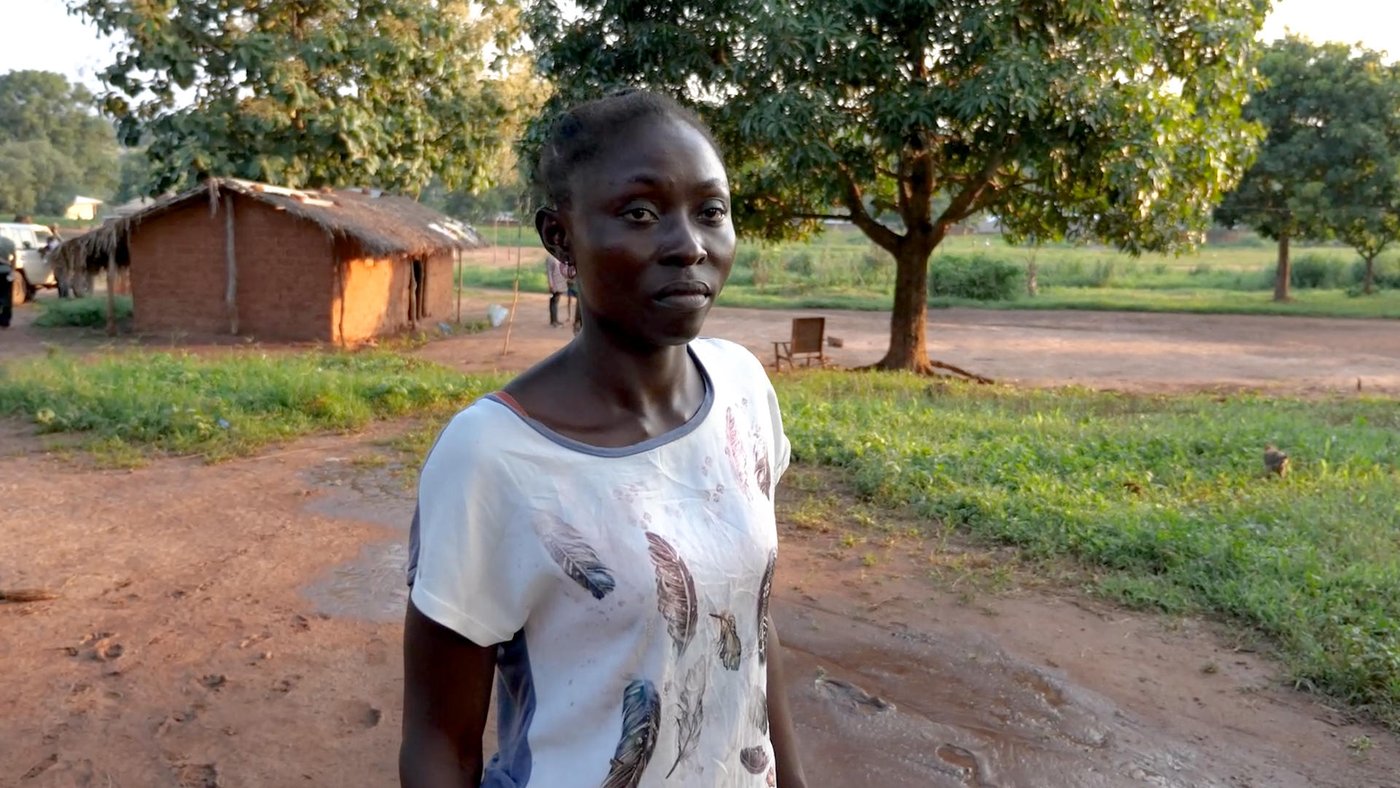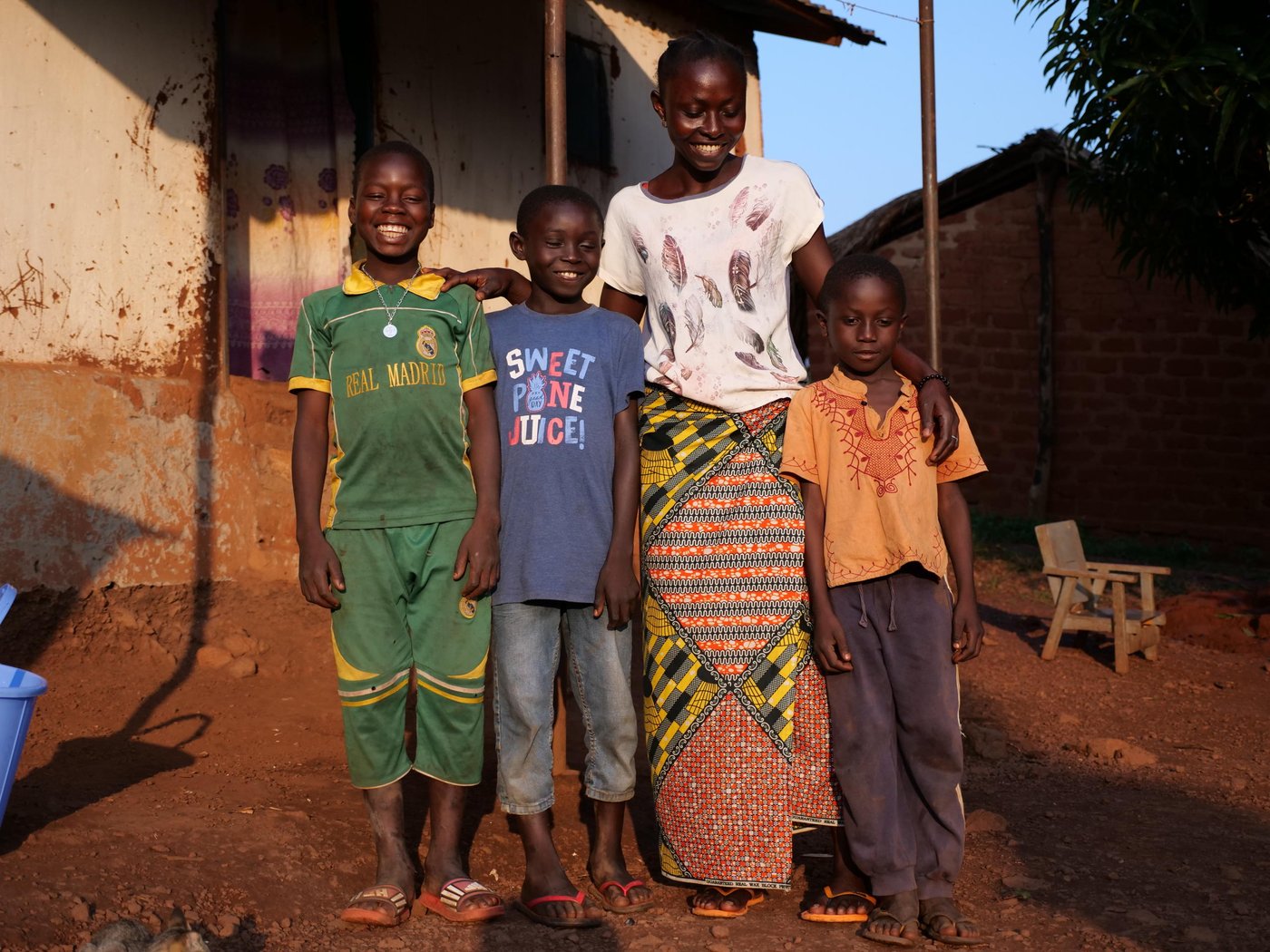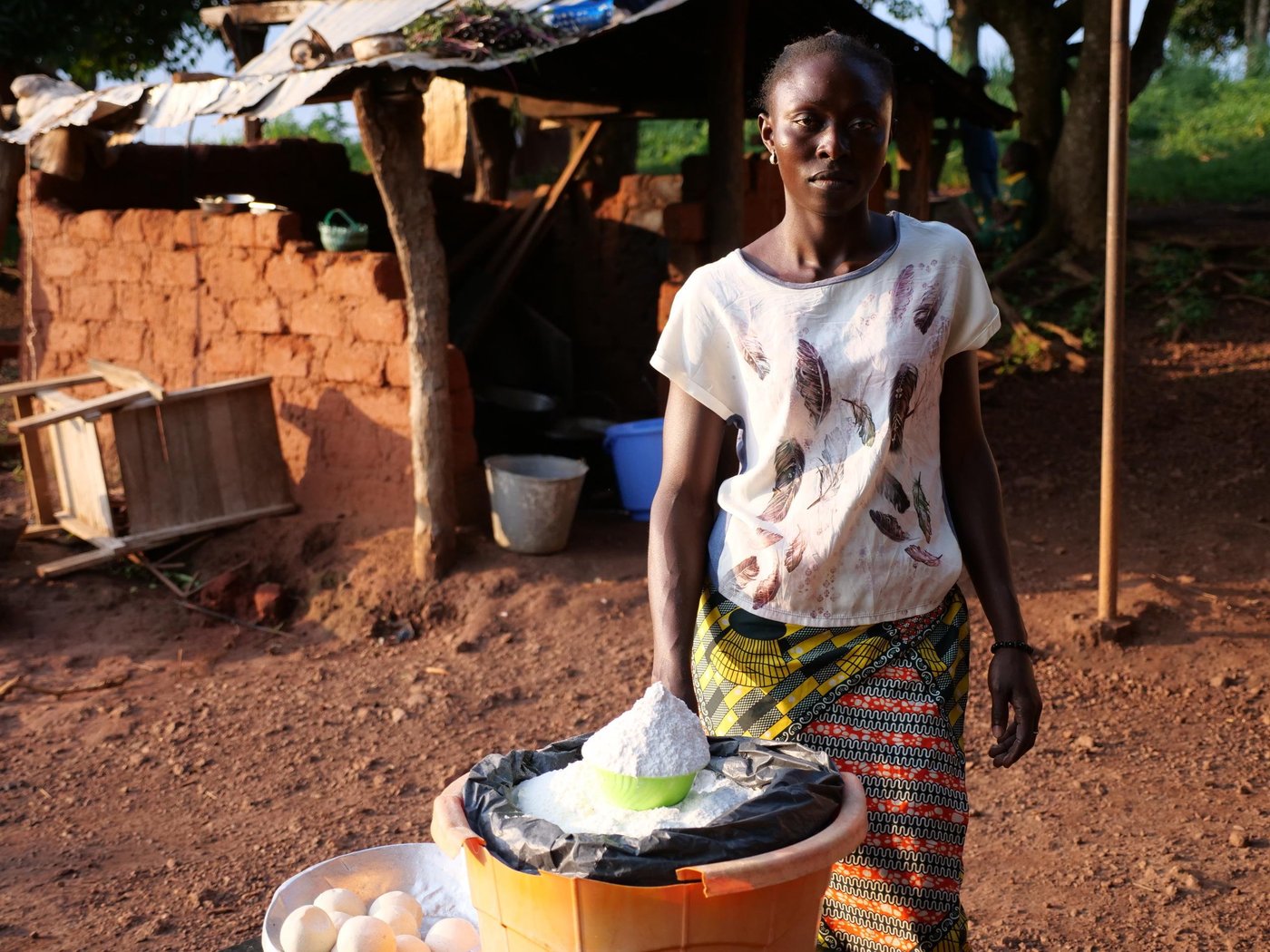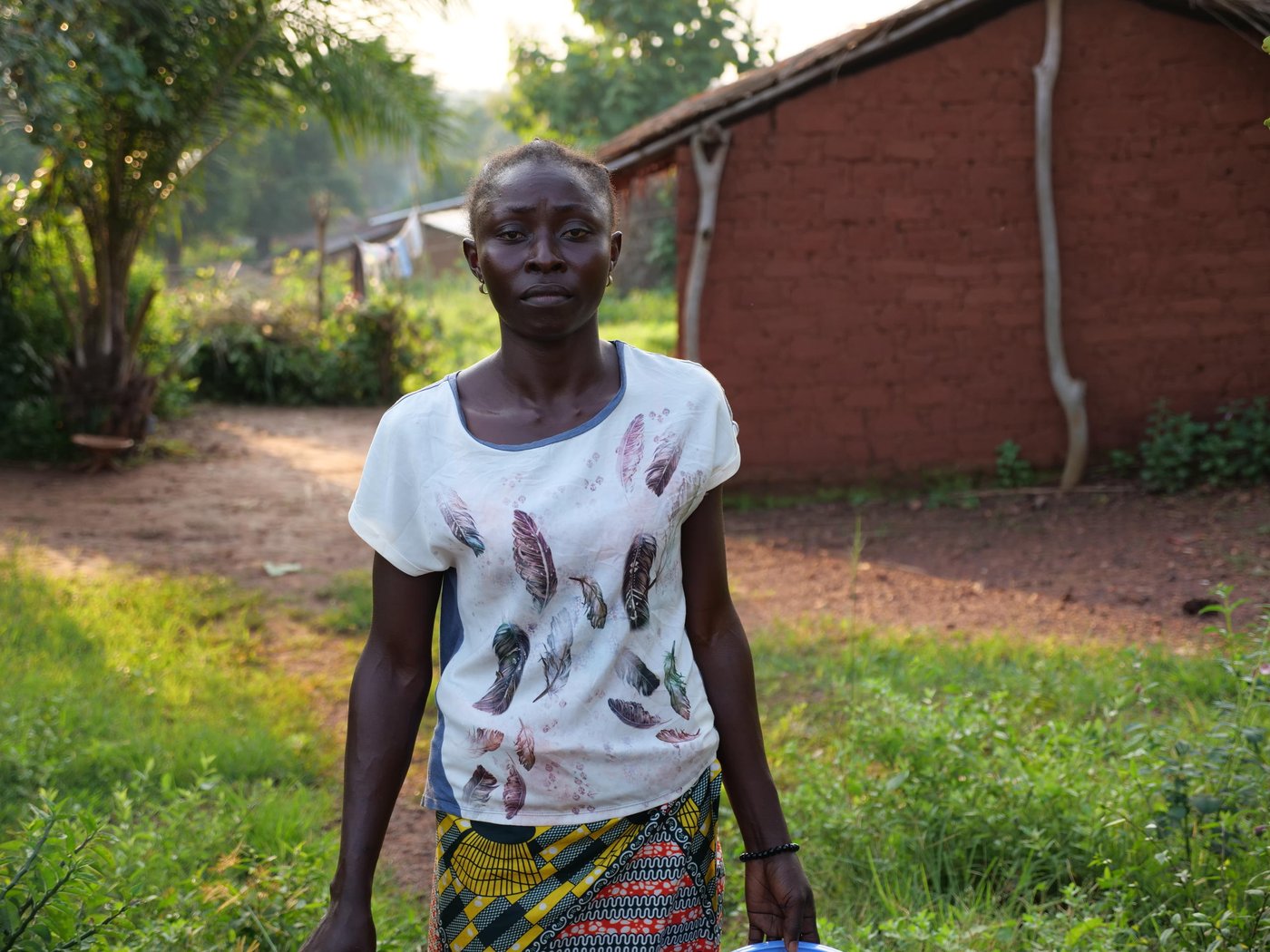Gunfire had erupted as Nuela was farming in the fields just outside her village. She knew she needed to flee to safety. But first she had to find her children.
Today in the Central African Republic (CAR), fleeing one’s home at a moment’s notice is unfortunately not an uncommon occurrence. The frequency of attacks on villages by armed groups, and the ensuing clashes with forces allied with the government, are a part of the reality for millions living in the country.
NRC works to support refugees and displaced people in over 30 countries around the world, including CAR. Support our work today
In January 2021, Nuela was living in Birlo village in the south-west of CAR when such an attack occurred. The day started out as normal. Nuela was tending to a small plot of land just outside her village. Suddenly, everything changed.

“I saw many people starting to run,” she recalls. “When I asked why they were running, they said an armed group had entered and taken control of the village. I asked them if they had seen my children. But they had just fled as quickly as they could.”
Her neighbours told her that it was a bad idea to try to go back, that it wasn’t safe. They even tried to physically hold her back from returning to the village. But Nuela told them that she couldn’t abandon her sons. “I had no choice but to go back and try to find my children,” she says.
When Nuela returned to the village, most of the residents had already fled. She could hear the gunshots loudly now and she tried not to panic as she searched frantically for her children.
She finally reached her home and breathed a sigh of relief. Her sons were there waiting for her. Without pausing to grab anything, she gathered Kolo, 10, Jospin, 8, and Cedric, 7, and herded them back out of the village in the direction from which she had come.

As relieved as she was, this was only the beginning of her ordeal.
Unlike most of her neighbours, Nuela decided that she would not hide in the bush and wait for the violence to end. Instead, she decided to walk through the bush with her sons to the town of Boali, a journey of nine hours, to stay with an aunt.
“As soon as my aunt saw me, she was so relieved that she started to cry,” says Nuela. “She asked me to stay and that’s why I’m here in Boali to this day.”
Displacement in numbers
According to the United Nations Office for the Coordination of Humanitarian Affairs (OCHA), 713,000 people in CAR had fled their homes as of 31 August 2021. In addition, a staggering 57 per cent of CAR’s population do not have reliable access to food. That’s 2.6 million people in total.
The Norwegian Refugee Council's (NRC) food security and livelihoods team in CAR is responding by providing emergency assistance to recently displaced families.

Nuela was one of many that benefitted from NRC's assistance. She received a cash grant of USD 95 after arriving in Boali. She immediately used the funds to purchase cassava tubers which she ground to sell as cassava flour outside the home she now shares with her aunt and children.
Despite all she has been through, Nuela remains resilient and is determined to support herself and her three children financially.
I just want peace for my country so that we can work in our fields, go about our business, and see our children go to schoolNuela, mother of three
She admits that she is worried about the future. Boali, the town where she sought refuge, has also been attacked and she is worried that everything she has experienced might happen again. But despite all this, Nuela believes peace is possible.
“I just want peace for my country so that we can work in our fields, go about our business, and see our children go to school,” she says. “Then we will move past the memories of conflict and live in peace.”


